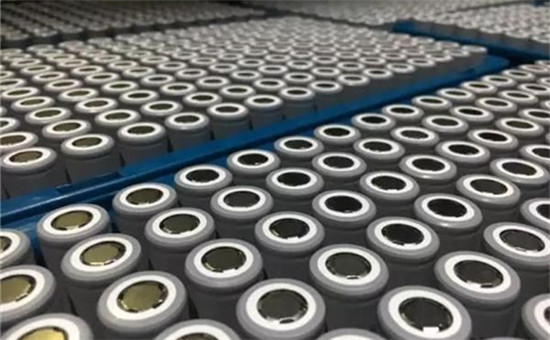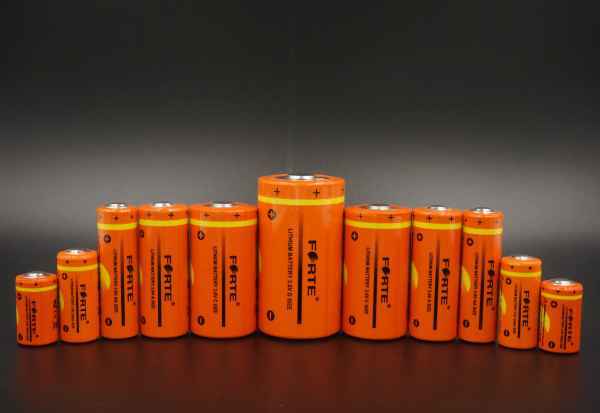Lithium Ion Battery and Cold Weather Effect
Dec 16, 2019 Pageview:1654
Lithium-ion (Li-ion) batteries consist of high power and high energy density, with increased capacity and a remarkable working performance. Since lithium-ion batteries are rechargeable batteries, they are used as a power source in numerous applications. Therefore, temperature plays a vital role since it greatly affects the performance of the Li-ion batteries. Plus, it also controls the Li-ion battery’s function.
Furthermore, different temperatures create different harmful effects. Understanding the effects of different temperatures both inside and outside the Li-ion batteries is important in order to manage the battery properly. Hence, in this article, the effect of low temperatures on the Li-ion batteries will be discussed and how it alters the performance of the Li-ion batteries will also be seen.
Does Cold Temperature Affect Lithium Ion Battery?
When a device containing the Li-ion battery is used at an extremely low temperature, a great amount of shortage is seen in its battery life. This characteristic and effect takes place in all Li-ion batteries when used at a low temperature. However, this effect is not permanent. Once the temperature of the battery returns to a normal range, then the performance of the Li-ion battery goes back to being normal as well. However, it is advised to not charge the Li-ion battery at low temperatures in order to maintain its safety.
What Temperature Do lithium ion batteries Freeze?
It should be noted that the electrolytes in majority of the Li-ion batteries freezes at about ?40 °C (?40°F). The Li-ion functions within the limits of its discharge temperature that ranges from a -20°C to about 60°C (-4°F to about 140°F). The performance is based on the temperature, which means that its rate capability that is on or below the temperature of -20°C is lowered; this is because of the electrolyte’s increased impedance. Furthermore, discharging the Li-ion battery at lower temperature doesn’t negatively affect the battery. The Li-ion can be used at a temperature of 30°C (-22°F) and produce satisfactory results. However, larger packs are going to be required in order to make up for the less capacity because of these temperatures.
Furthermore, lithium-ion batteries can be quickly charged at 5°C to about 45°C (41°F to about 113°F). When the temperature is below 5°C, then the charge current must be reduced, plus no charging can be allowed at extremely low and freezing temperatures due to the anode having lowered diffusion rates. Moreover, during a charge, internal resistance of the cell creates a minor rise in the temperature to make up for the little bit of cold. Every battery’s internal resistance rises when it is cold, extending the charging time noticeably.
However, many users of these batteries are not aware of the fact that the consumer-grade Li-ion batteries can’t be charged once the temperature reaches below 0°C (32°F). Even though it might appear to be normally charging the battery, metallic lithium plating can take place on its anode during the charge that is taking place below 0°C. This will be permanent and will not be able to be removed with further cycling. That is why batteries that have lithium plating will be more susceptible to failure when exposed to various stressful conditions.
Furthermore, developments are taking place when it comes to charging lithium-ion below the freezing temperatures. Indeed, charging can be possible with a lot of the Li-ion batteries, but at extremely low currents. Certain research papers suggest that the charge rate that is allowed at the temperature of –30°C (–22°F) is about 0.02C. But, with a low current like this, the charging time would expand to more than fifty hours, which is clearly impractical. However, there are certain lithium-ions that are able to charge down at the temperature of –10°C (14°F) at a lowered rate.
Does Freezing A Lithium Ion Battery Can Extend Battery Life?
Numerous experts believe the fact that freezing the Li-ion battery can improve its chances of increasing the battery’s service life. It is said that this technique can make the lithium batteries much safer when it comes to using them, while also extending its life expectancy. Furthermore, the researchers mentioned that this technique can enhance the flexibility of the batteries; hence making them more suitable to be used in bendable gadgets and devices in the coming future.
This technique of freezing the lithium-ion batteries, which was created by the researchers, is known as ice-templating or freeze-casting. This is a process where the electrolyte’s chemical structure of the lithium-based batteries can be manipulated or controlled by the experts. This will allow them to create batteries for portable devices that are more fitting. Plus, electric vehicles and grid-level energy storage will be enhanced as well.
Currently, the lithium batteries consist of a liquid electrolyte that is known to come with a high risk of being flammable and cause explosions in batteries. Thus, this is what made the researchers conduct numerous studies that will help them in coming up with a solution to this problem and avoid incidents like these from taking place by coming up with new alternatives. Therefore, the researchers worked hard and relentlessly in order to improve the situation as they came across an abundance of information. Hence, they discovered a possibility of constructing the battery with a solid electrolyte instead of a liquid one. This method would make the batteries much safer; therefore freeze-casting was created.
Furthermore, lithium-based batteries are getting negatively affected due to being exposed to high temperature, heat, or high charging voltage rate. In simple terms, when batteries are exposed to increased temperature or left fully-charged, then they tend to lose the ability of storing charge. Hence, a lot of stresses on these batteries tend to seriously affect and lower the lifespan of the lithium-based battery. On the other hand, storing the batteries, once they have been charged and kept away from heat, in an enclosed space with lowered temperature will have a lot of positive effects. Due to freezing the battery, the stress will be eliminated; hence this will turn out to be extremely beneficial for it.
Currently, this operation is under production and development. Plus, the researchers are presently working on the construction of a prototype. When the end product turns out to be successful, this will be seen as the battery industry’s remarkable achievement.
- Prev Article: Li-Ion and Li-Polymer Battery Comparison
- Next Article: Are all rechargeable batteries lithium?
Leave Message
Hottest Categories
-
Hottest Industry News
-
Latest Industry News












